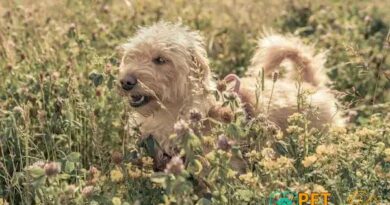What is: Zinc toxicity prevention
Understanding Zinc Toxicity in Dogs
Zinc toxicity in dogs occurs when there is an excessive accumulation of zinc in their bodies, leading to various health issues. This condition can arise from the ingestion of zinc-containing items such as coins, batteries, or certain supplements. Dogs are particularly susceptible to zinc toxicity due to their natural curiosity and tendency to chew on objects. Recognizing the signs and symptoms early can be crucial for effective treatment and prevention.
Common Sources of Zinc Exposure
Zinc can be found in numerous everyday items, making it essential for dog owners to be aware of potential hazards. Common sources include galvanized metal, dietary supplements, and certain types of dog food that may contain high levels of zinc. Additionally, some toys and household items may have zinc coatings. Understanding these sources can help prevent accidental ingestion and subsequent toxicity in dogs.
Symptoms of Zinc Toxicity in Dogs
The symptoms of zinc toxicity can vary widely, but they often include vomiting, diarrhea, lethargy, and loss of appetite. In more severe cases, dogs may exhibit signs of abdominal pain, jaundice, or neurological issues. If you notice any of these symptoms in your dog, it is crucial to seek veterinary care immediately. Early intervention can significantly improve the prognosis and recovery of your pet.
Diagnosis of Zinc Toxicity
Veterinarians diagnose zinc toxicity through a combination of clinical signs, history of exposure, and laboratory tests. Blood tests can reveal elevated levels of zinc, while imaging studies may be used to identify any foreign objects in the gastrointestinal tract. A thorough examination and accurate diagnosis are vital for determining the appropriate treatment plan for affected dogs.
Treatment Options for Zinc Toxicity
Treatment for zinc toxicity typically involves removing the source of zinc and providing supportive care. This may include intravenous fluids to prevent dehydration, medications to control vomiting, and, in some cases, chelation therapy to help remove excess zinc from the body. The specific treatment plan will depend on the severity of the toxicity and the overall health of the dog.
Preventing Zinc Toxicity in Dogs
Preventing zinc toxicity is primarily about being proactive and vigilant. Dog owners should keep zinc-containing items out of reach and be cautious about the types of toys and household products they allow their pets to access. Additionally, consulting with a veterinarian about appropriate dietary supplements and dog food can help ensure that your dog receives the right amount of zinc without the risk of toxicity.
Role of Diet in Zinc Toxicity Prevention
A balanced diet is crucial in preventing zinc toxicity in dogs. While zinc is an essential nutrient for dogs, too much can lead to health complications. It’s important to choose high-quality dog food that meets the nutritional requirements without exceeding safe levels of zinc. Consulting with a veterinarian can help you determine the best dietary choices for your dog’s specific needs.
Monitoring Your Dog’s Health
Regular veterinary check-ups are essential for monitoring your dog’s health and preventing zinc toxicity. During these visits, your veterinarian can assess your dog’s diet, lifestyle, and any potential risks associated with zinc exposure. Keeping an open line of communication with your vet can help you stay informed about the best practices for maintaining your dog’s health and well-being.
Emergency Response to Zinc Toxicity
In the event of suspected zinc toxicity, immediate action is necessary. If you believe your dog has ingested a zinc-containing item, contact your veterinarian or an emergency animal clinic right away. Providing them with as much information as possible, including the type of item ingested and the time of exposure, can aid in the timely treatment of your pet.
Educating Others About Zinc Toxicity
Raising awareness about zinc toxicity in dogs is vital for prevention. Sharing information with fellow dog owners, friends, and family can help create a safer environment for pets. By educating others about the risks associated with zinc exposure and the importance of monitoring their dogs, we can work together to reduce the incidence of this potentially dangerous condition.


